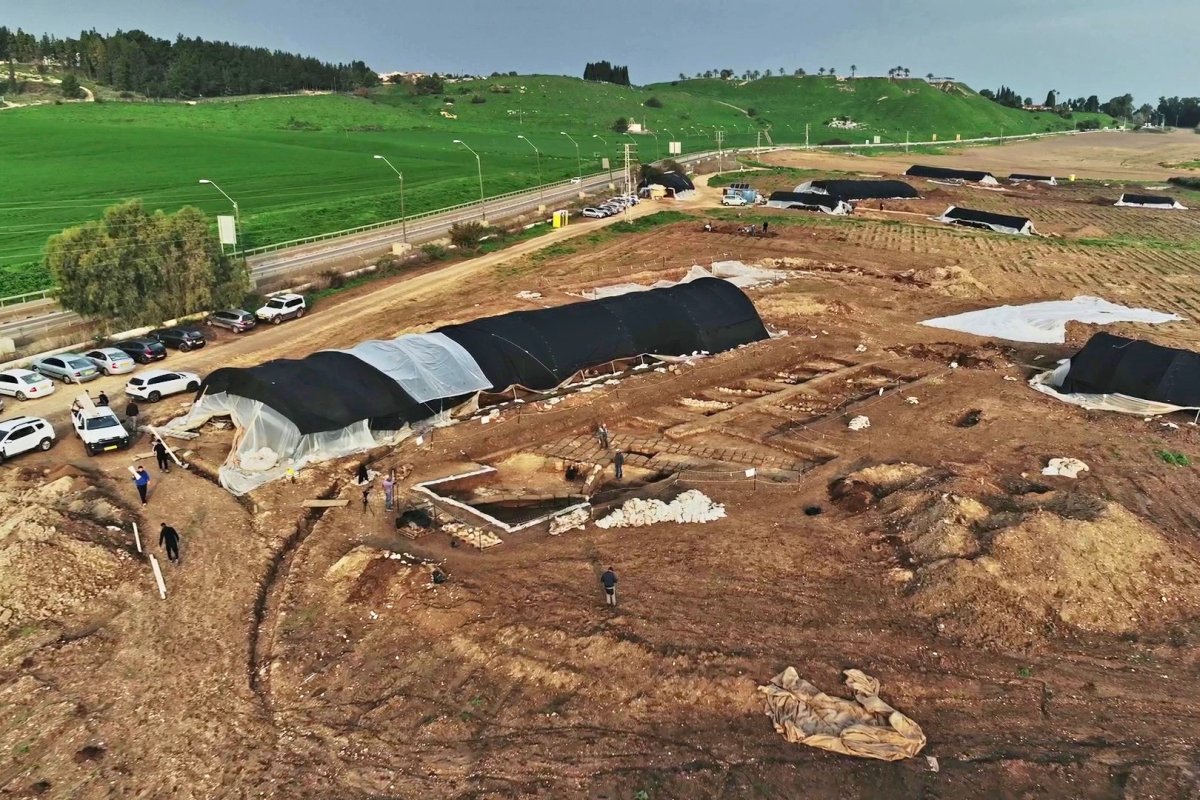Archaeologists have uncovered remains of a 1,800-year-old Roman military base that once housed thousands of soldiers.
The base is located at the foot of Tel Megiddo—the site of an ancient city in northern Israel, the remains of which form an artificial mound. The settlement was an important center in the ancient world and was inhabited for thousands of years.
The military base at Megiddo once belonged to the Legio VI Ferrata ("Sixth Ironclad Legion") of the Imperial Roman Army, which was sent to garrison the province of Judaea in the first century.
The camp served as the permanent military base for more than 5,000 Roman soldiers from around A.D. 117/120-300, according to archaeologist Yotam Tepper, who directed excavations at the site on behalf of the Israel Antiquities Authority (IAA).

During the course of recent investigations, archaeologists uncovered extensive architectural remains of the Via Pretoria (the camp's main road), as well as a semi-circular-shaped podium and paved stone areas that once formed part of a monumental public building. These remains represent the northeastern part of the camp, according to an IAA press release. The excavations took place as part of a major infrastructure project to expand and upgrade Road 66, which passes through the area.
Previous excavations at the site had already uncovered other finds, including defensive earthworks, a barracks area and the upper part of the commanders' courtyard.
"The importance of the current excavation is in revealing the remains of the base also to the northeast of Road 66," Tepper told Newsweek. "The remains discovered in the current excavation are impressive and are a great contribution to our understanding of the Roman base."
The military base measured around 1,800 feet in length and 1,150 feet wide, featuring two main roads that intersected at the center. The site is the only Roman military base of such a size that has been found to date in Israel, according to the press release.
The headquarters of the base was constructed at the intersection of the two main roads, Tepper said.
"It was from this base point that all the distances along the Roman Imperial roads to the main cities in the north of the country were measured and marked with milestones," he said.
"The unique contribution of the results of this research project lies in the rarity of such archaeological discoveries," Tepper said. "Whilst Roman military camps are known in Israel, they are temporary siege camps, or small camps belonging to auxiliary divisions. None compares with the entire complex of the legionary base."
During excavations at the site of the base, archaeologists also uncovered coins, parts of weapons, pottery fragments and roof tiles—the latter being the most predominant find.
"The roof tiles...were used for various purposes, for roofing buildings, paving floors and coating walls. The technology and know-how, the building techniques, and the weapons that the Legion brought with it from the home country, are unique to the Roman army, reflecting specific Roman Imperial military footprints," Tepper said.
Do you have a tip on a science story that Newsweek should be covering? Do you have a question about archaeology? Let us know via science@newsweek.com.
Update 2/21/24, 8:53 a.m. ET: This article has been updated to include additional comments from Yotam Tepper.
Uncommon Knowledge
Newsweek is committed to challenging conventional wisdom and finding connections in the search for common ground.
Newsweek is committed to challenging conventional wisdom and finding connections in the search for common ground.
About the writer
Aristos is a Newsweek science reporter with the London, U.K., bureau. He reports on science and health topics, including; animal, ... Read more
To read how Newsweek uses AI as a newsroom tool, Click here.








